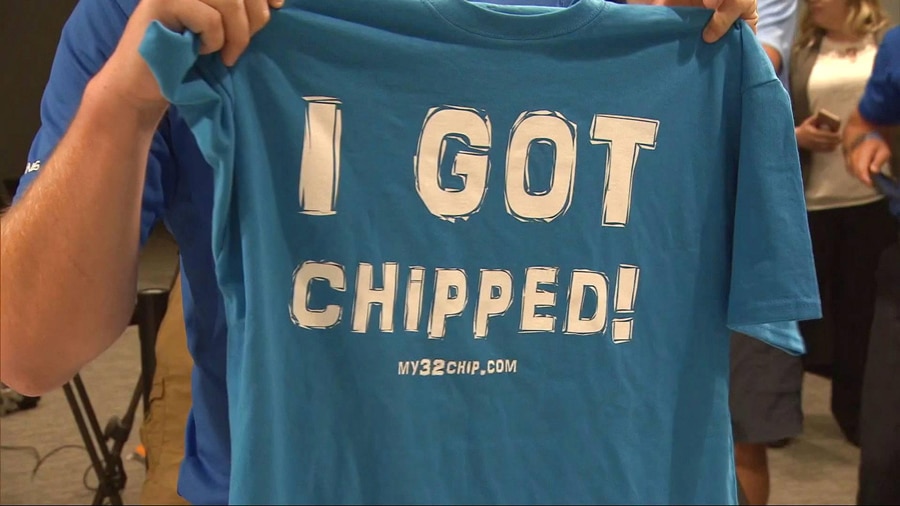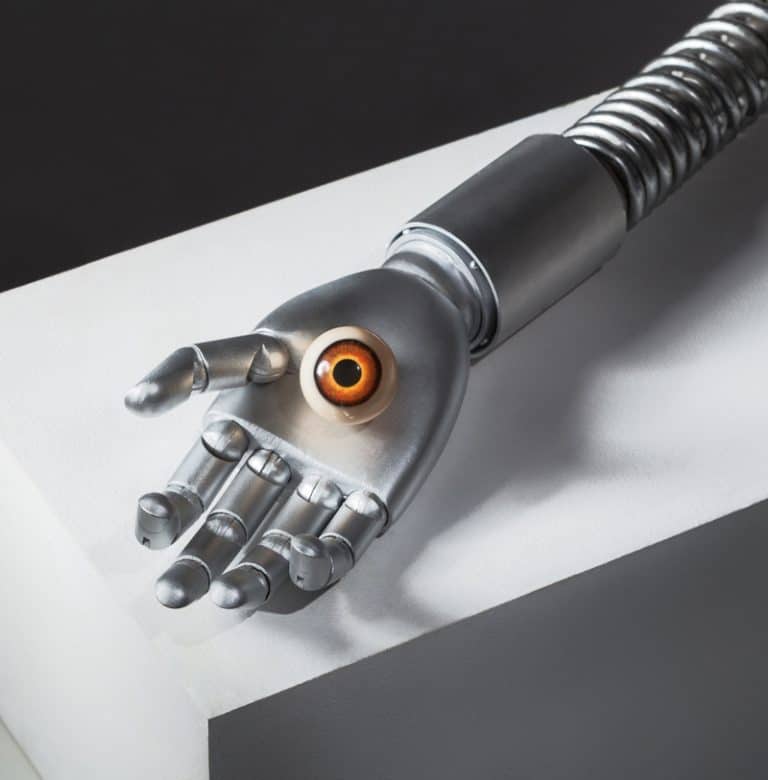Microchipping: where it’s at and why it still hasn’t gotten under our skin
Some of you might not remember, but August 2017 was definitely microchipping’s ‘breakthrough’. Wisconsin-based company Three Square Market had lined up its employees in its cafeteria to be implanted with microchips. Just after that, the news named the event the “chipping party” and bombarded us with futuristic tales of cashless payments and phoneless calls. We were all going to be transhuman. Back to 2019, and most of us are still microchip-free. So why are microchips still not the norm?
Let’s start with the obvious—the idea of living with a chip under your skin potentially monitoring your every move is not one that is easy to accept. After the famous chipping party, religious groups panicked, convinced that the small implants actually marked people with “the mark of the beast”, and accused Three Square Market of being the antichrist. While this sounded highly improbable, more rational worries have since then been stated and proved right.

Microchip implants are similar to the ones we’ve started putting under livestock and our pets’ skin. In other words, the tiny bar codes have been around for a while. Kevin Warwick, a professor of cybernetics at Reading University, had already implanted a chip in his hand by 1998. Warwick wanted to show the world that it was doable, but also that microchipping was the future. To him, fusing technology with our bodies had to be the next big step. He obviously didn’t take data breaches and exploitation of labour into consideration.
So far, the few people that have been microchipped are digital-savvy people from wealthy countries. Well-educated Swedes—“chips and beer” evenings were quite big in Stockholm—do not make up the world’s population. Talking to The Guardian, Urs Gasser, executive director at Harvard’s Berkman Klein Center for Internet and Society, made a very valid point about the way people reacted to the chipping party, stating that “[s]eeing employees get implanted at the workplace made people question what it means to be an employee. Are you a person being paid for your work, or are you the property of the company you work for?” These implants probably weren’t the “mark of the beast”, but they definitely reminded us of the dystopian novel 1984.
The implications that microchipping technology brings with itself are exactly what stops us from getting them. Having a chip under our skin equals increased worker surveillance for most. And, more recently, it could also mean that data collection methods could go up a notch—something that we clearly don’t need while Facebook is still around. After all, microchips could surveil us non stop, and monitor us wherever we go. Remember the nightmare that was Snapchat Map, when all your Snapchat contacts could see where you were at any time of the day? Imagine this with microchips, only this time we won’t be able to turn its signal off.
The same kind of concerns have recently been raised by lawmakers in the US. The states of Arkansas, New Jersey and Tennessee have started drafting new bills to make involuntary microchipping illegal, while Nevada has already passed its own version of the bill. The message is: feel free to microchip yourself if you want, but don’t force anyone to do the same, especially not if they’re your employees. And yet, surveillance tech still is a big issue in the US, with companies forcing their employees to wear an Apple watch constantly to monitor their health. There doesn’t seem to be that much difference between this and microchips.
To try and look at microchipping under a different light than this ethically problematic one, Screen Shot spoke to Jowan Österlund, founder and CEO of the microchipping company Biohax, and the body piercing professional that microchipped the lucky employees who attended 2017’s chipping party. Österlund, like many others, can’t ignore the risks that microchips could entail, but for him, it’s part of a good thing, “People say that [they’re scared of microchips] while they’re on Facebook, on their smartphones logged into their Google accounts, so I can’t really take that seriously. I wouldn’t want people to blindly accept any kind of new technologies, because that would be repeating the same mistakes again. If people are scared, it’s good—they get informed, and they’re not afraid anymore.”
Österlund furthered his point by pinpointing the many benefits that microchips could bring to adapters, such as health-related tracking, “you could get all the information you need about your heart rate patterns, your sleeping patterns, your blood oxygenation, and breathing patterns.” According to him, most of us react that way to microchips because of the small body modification they come with. What needs to be changed, for them to be 100 per cent safe, are the regulations that have been proven to be already problematic, even without most of us having a chip implant.
Instead of panicking about microchips, our attention should be focused on demanding stronger labour regulations and data protection laws, such as Europe’s General Data Protection Regulation (GDPR). In other words, don’t shoot the messenger. Microchips could be our society’s gamechanger—the only question is: are we ready for that kind of change?






